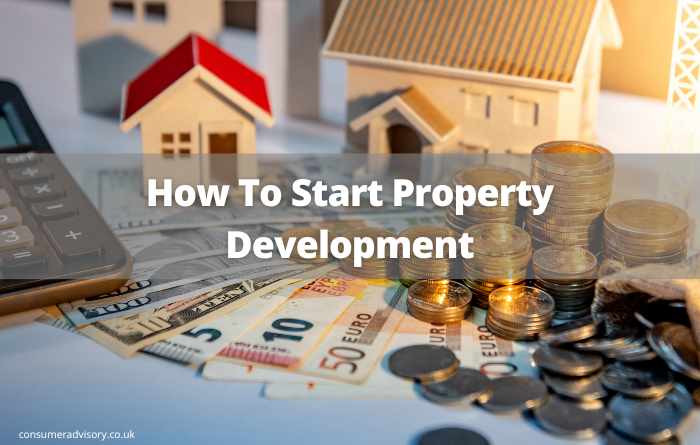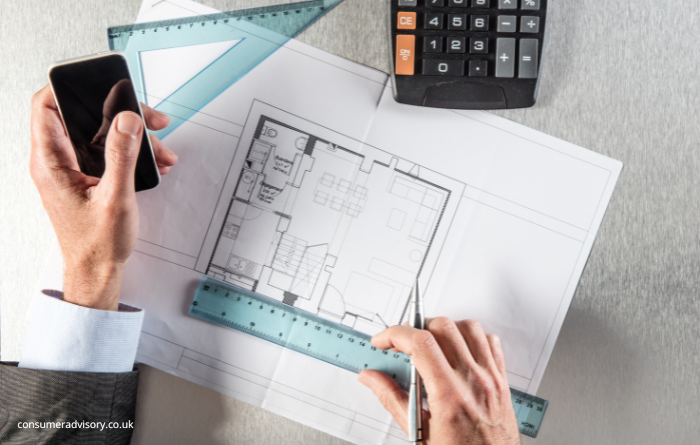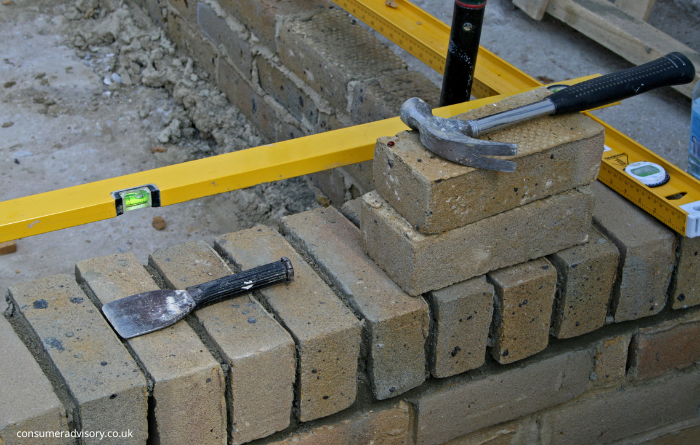
If you’re thinking about getting involved in real estate, you might be wondering how to start property development. The answer to this might seem straightforward – invest in your first property, renovate it and either rent it out or sell it. But it often isn’t as easy as simply buying a property, and any mistakes that you make in this industry could be costly.
You need to think about how you’ll finance your property, as well as your long term plans. Are you looking to develop a portfolio of properties to rent out, or to renovate houses to sell on?
There are a number of things you need to consider when getting started in property development. In this beginner’s guide, we’ll take you through the key steps involved in starting your own property development journey. We’ll also talk you through some of the most common mistakes to avoid when you’re getting started on your property journey.
What Is Property Development?
Property development is the process of taking a piece of land or an existing property and improving it. This might involve adding new buildings or making changes to the existing ones.
The end goal of property development is to create a new asset that can be sold or rented for a profit. Property developers will often work with architects, engineers, and planning consultants to make sure their projects are viable.
Why Develop Property?
There are a number of reasons why people choose to develop property:
To Make Money
The most common reason people get involved in property development is to make money. By adding value to a piece of land or an existing property, developers can sell or rent their asset for a profit.
To Create A Passive Income Stream
If you develop a portfolio of properties to rent out, you can create a passive income stream. This is where you receive regular payments from your tenants without having to do much work.
To Improve The Local Area
Some developers get involved in property development to improve the local area. By redeveloping run-down properties, they can help to gentrify an area and make it more attractive to live in.
A Fun Hobby
For some people, property development is a fun hobby. They enjoy the challenge of taking on a project and seeing it through to completion.
To Build A Legacy
Some people choose to develop property as a way to leave a legacy. This might involve redeveloping a family home or building a new property that can be passed down through the generations.
How To Get Started With Property Development
Now that you know a bit more about why people develop property, let’s take a look at how you can get started.
1. Do Your Research
Firstly, you need to educate yourself about the process and the risks involved. The more that you know about property development, the more prepared you’ll be and the less mistakes you’re likely to make.
2. Organise Your Finances
You need to know exactly how much you’ve got to spend and where your funding is coming from before you can begin looking for properties to develop. If you’re planning to take out a mortgage, it’s a good idea to speak to an independent mortgage advisor who can talk you through your options and give you an idea of the amount that you could borrow.
3. Choose Your Market
The first step is to choose your market. This might be your local area, a city that you’re interested in, or a country that you want to invest in.
When choosing your market, you need to think about a few things:
- The current state of the market – is it a buyer’s or seller’s market?
- What is the potential for growth?
- What are the prices like?
- Are there any upcoming developments that could impact the market?
4. Find A Property
Once you’ve chosen your market, it’s time to find a property. You can do this yourself or you can use a real estate agent.
When you’re looking for a property, you need to think about your budget and what you’re looking for in a property. Are you looking for a fixer-upper or a ready-to-go investment?
You also need to consider the location of the property. Is it in a desirable area? Is it close to public transport and local amenities?
5. Make An Offer
Once you’ve found a property that you’re interested in, it’s time to make an offer. This is where you’ll negotiate with the seller to try and agree on a price.
If your offer is accepted, you’ll need to pay a deposit and sign a contract. The contract will outline the conditions of the sale and what will happen if you default on the loan.
6. Renovate The Property
If you’re planning on renovating the property, now is the time to do it. This might involve anything from painting the walls to gutting the property and starting again.
You’ll need to get quotes from contractors and make sure you have the necessary permits in place before you start any work.
7. Sell Or Rent The Property
Once you’ve renovated the property, it’s time to sell the property, or to find a tenant to rent it out to. If you’re selling the property, you’ll need to find a real estate agent and list the property on the market.
If you’re renting out the property, you’ll need to find a tenant and draw up a lease agreement. You can do this yourself or use a property management company.
8. Enjoy Your Profits!
Property development can be a great way to make money. But it’s not without its risks. You need to make sure you do your research and understand the market before you get started.
If you’re looking for a challenge and enjoy seeing a project through from start to finish, property development might be for you.

How Can I Become A Property Developer With No Money?
If you don’t have the funds to purchase a property outright, there are a few ways you can get started in property development.
1. Find A Private Lender
One option is to find a private lender who is willing to lend you the money for the purchase and renovations. You’ll need to put up some form of collateral, such as your home, and you’ll usually need to pay a higher interest rate.
2. Find A Joint Venture Partner
Another option is to find a joint venture partner who will contribute the money for the project. You’ll then share the profits (or losses) between you.
3. Use Your Home Equity
If you have equity in your home, you could use this to finance your property development project. This is a riskier option as you could lose your home if you’re unable to make the repayments.
4. Get A Loan From Friends Or Family
You could also ask friends or family for a loan to get started in property development. This is a risky option as you could put your relationships at risk if you’re unable to repay the loan.
5. Use A Credit Card
You could also use a credit card to finance your project. This is a very risky option as you could end up with a lot of debt if you’re not able to sell the property or find a tenant.
6. Save Up The Money
If you don’t have the funds available immediately, you could save up the money over time. This option will take longer, but it’s a safer option as you’re not putting your home or relationships at risk.
How Does A Property Developer Make Money?
A property developer makes money by buying a property, renovating it, and then selling it or renting it out. The profit is made from the difference between the purchase price and the sale price (or rental income).
What Are The Risks Of Property Development?
Property development is a risky business. There are a number of things that can go wrong, such as:
- The property market could change and you could end up making a loss on the sale.
- The renovations could cost more than you expect.
- You could have trouble finding a tenant or selling the property.
- You could default on your loan and lose your home.
However, despite the risks, many people find property development to be a rewarding and profitable venture.
Can Anyone Be A Property Developer?
Anyone can be a property developer, but it’s not for everyone. You need to have a good head for numbers and be comfortable with risk.
You also need to be organized and able to handle the stress of dealing with contractors, real estate agents, and tenants.
If you’re thinking of getting into property development, make sure you do your research and understand the risks involved.
How Much Profit Does A Developer Make On A House?
The amount of profit a developer makes on a house depends on a number of factors, such as the purchase price, the cost of renovations, the current market value, and the selling price.
In general, a developer will aim to make a profit of 20-30% on each deal. However, this varies depending on the location, the individual project and the local property market.

What Is A Good ROI For Property Development?
A good ROI (return on investment) for property development is around 20-30%. This means that for every £1,000 you spend on a project, you should expect to make a return of £1,200 – £1,300.
Of course, this is just a general guide and your actual ROI will depend on a number of factors, such as the purchase price, the cost of renovations, and the selling price.
What Are The Costs Of Property Development?
The costs of property development vary depending on the size and scope of the project. However, there are some general costs that you can expect to incur, such as:
- Purchase Price – This is the price you pay for the property.
- Renovation Costs – This is the cost of materials and labour for the renovations.
- Agent’s Fees – This is the fee you pay to the real estate agent when you sell the property.
- Legal Fees – This is the cost of a solicitor to handle the legal aspects of the sale.
- Mortgage Interest – This is the interest you pay on your development loan.
What Skills Do You Need To Become A Property Developer?
To become a successful property developer, you need to have a good head for numbers and be comfortable with risk. You also need to be well-organized and able to handle the stress of dealing with contractors, real estate agents, and tenants.
In addition, it’s helpful if you have some knowledge of the construction process and an understanding of the local property market.
It’s always a bonus if you enjoy DIY. By completing parts of the renovation yourself, you can keep the costs down and maximise your profits. However, this isn’t a necessity, as you can choose to pay contractors to carry out the work if this is not something that you are comfortable with.
If you’re thinking of getting into property development, make sure you do your research and understand the risks involved. Property development is a risky business, but it can be very rewarding if you’re successful.
Is It Worth Putting Property Into A Limited Company?
Some developers choose to set up a limited company to purchase and develop property. There are a number of advantages to doing this, such as:
- It can help you to minimise your tax liability.
- It can make it easier to get finance from banks and other lenders.
- It can give you limited liability, which means that you are not personally responsible for any debts incurred by the company.
However, there are also some disadvantages to setting up a limited company, such as:
- It can be more expensive and time-consuming to set up and run a company.
- You will need to comply with various company law requirements.
- There is no guarantee that your company will be successful.
Before you decide to set up a limited company, it’s important to speak to an accountant or solicitor to get professional advice.
Do Property Developers Pay Stamp Duty?
Property developers are required to pay stamp duty on any properties that they purchase. The amount of stamp duty payable depends on the purchase price of the property and the location.
For most property developers, the property that they’re purchasing will be classed as a second home, as they will already own at least one other property. This means that they will be taxed at a rate which is 3% higher than the standard stamp duty rates.
In Summary
It can be hard to know where to start when you are trying to become a property developer. It is a competitive market and you need to know what you’re doing to avoid making costly mistakes.
In this article, we have explained how to start property development, as well as answering some of the most commonly asked questions about property development. We hope that this has been helpful and that you are now feeling more confident about taking your first steps into this exciting industry.
